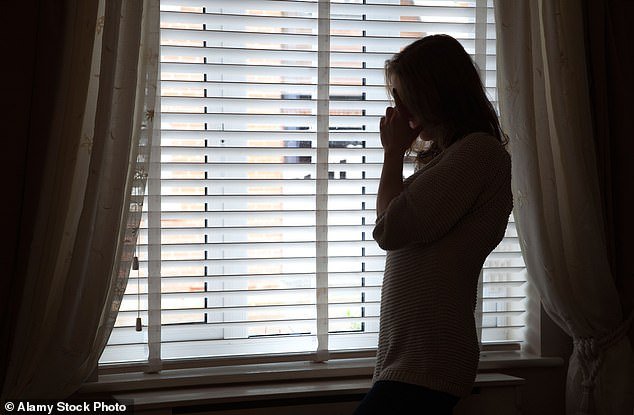Hundreds of thousands of people are walking away from NHS mental health ‘talk therapy’ because in many cases they don’t think it works, experts have warned.
More than a million people are referred every year for the treatment, which is designed to help patients cope with common mental health problems such as anxiety and depression.
While many patients see a mental health practitioner in person, a growing number of therapy sessions now take place over the phone, and even in the form of messaging conversations.
Last year, more than 600,000 NHS sessions took place via a chat app. This relatively new form of care is supported by the government as a possible solution to get thousands of people with mental health problems back to work.
Official figures show that two-thirds of people claiming disability benefits are out of work due to mental health problems – and between 2022 and 2023 this was cited around 870,000 times in claims.
One in ten young people in Britain are unable to work due to illness, mainly linked to mental health problems. Research shows that a third of people between the ages of 18 and 24 suffer from depression, anxiety or bipolar disorder.

More than a million people are referred for mental health treatment every year, but thousands walk away because they feel it doesn’t work (file photo)
In his autumn statement, Chancellor Jeremy Hunt announced plans to expand the use of so-called digital talking therapies to help tens of thousands of people in England access the help they need to return to work.
But damning figures from NHS England suggest that more than 40 per cent of people referred drop out before completing the course.
Of the 1.2 million referrals to NHS talking therapies in the period April 2022 to March 2023, only 672,193 completed a full course. Among young teenagers, the dropout rate was even higher: more than 60 percent.
NHS England claims that half of those who complete talk therapy have made a full recovery.
But leading mental health experts say there is no good evidence that this is true – because there is little or no follow-up to see if patients relapse later.
“The system is failing patients,” says Dr. Elizabeth Cotton, associate professor at the University of Leicester and author of a forthcoming book titled UberTherapy: The New Business Of Mental Health. ‘(NHS talk therapy) has now been relegated to a highly standardized, short-term solution-oriented model.
‘Often this is online, self-guided support without the input of a doctor. There is pressure on services to show a 50 percent recovery rate and discharge clients once they indicate their mood has improved.
‘Given the quality of many therapists working in the NHS, it is possible that some patients will benefit, but for others the feeling of being fobbed off could make their mental health even worse.’
About eight percent of people in Britain suffer from depression or anxiety. As many as one in ten will experience depression at some point.
Patients who wish to undergo talk therapy are referred by a GP or in some areas can access the services directly.
Most of these therapists offer a form of treatment known as cognitive behavioral therapy (CBT), which encourages people to change the way they think and behave to manage negative thoughts.
Studies suggest that cognitive behavioral therapy is effective in combating anxiety and depression – although it usually works best when combined with other treatments, such as antidepressants.
The same goes for cognitive behavioral therapy delivered over the phone or through a messaging app.
However, experts say the problem with the NHS system is that patients are not given a choice about which type of therapy they want to receive – meaning many are receiving care that is not right for them. This lack of choice is in large part due to the significant increase in the number of NHS mental health patients over the past twenty years.


Around eight percent of people in Britain suffer from depression or anxiety and as many as one in ten will experience depression at some point (file photo)
Since 2000, the number of common mental disorders such as anxiety and depression has increased by a third.
Experts say this has put a strain on mental health services, severely limiting treatment options.
‘Many people can benefit from internet chat therapy, and some may even prefer not to be seen face-to-face,’ says Dr Dean Eggitt, a GP from Doncaster.
‘But patients are not given a choice of therapy options. In my area you pretty much only get phone therapy or group sessions, and usually you have no say in which one you get.
This is because NHS resources are limited and so there is no option to offer people face-to-face therapy. So it’s no surprise that so many people drop out because the type of therapy… isn’t right for them.”
Figures show that a growing number of Brits are turning to private therapy. About 400,000 people pay for therapy. These sessions usually cost between €50 and €100 per session.
Demand has grown so much that data shows about half of private therapists are not accepting new patients.
Last year, a group of mental health specialists called the Campaign for Universal Access to Counseling and Psychotherapy launched a petition calling on the government to reconsider the use of digital therapy and give more NHS patients the chance to see counselors to see.
‘NHS talking therapies have an exceptionally high dropout rate and very low follow-up,’ the group says. “It doesn’t meet the needs of patients.”
An NHS spokesperson said: ‘The leading NHS Talking Therapy Service treated 1.2 million people for common mental health problems last year – with almost nine in 10 patients receiving support within six weeks – and thousands more people recovered from anxiety and depression compared to the last century. last year.’



